Search Results
Showing results 121 to 140 of 169
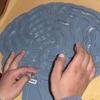
Tactile Mazes
Source Institutions
In this activity (15th activity on the page) about the sense of touch, learners use glue and cardboard to construct a maze they use with their eyes closed.
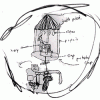
Art Cars
Source Institutions
In this activity, learners design miniature cars. Learners can create a telephone car, soccer car, merry-go-round car, or any other theme car they can imagine.
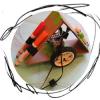
Push Pull Painter
Source Institutions
In this activity, learners create painting machines that can paint moving forwards and backwards.
Some Sums
Source Institutions
In this math game, learners solve a mind-twisting puzzle using dominoes. Use this activity to help learners practice counting, adding, and solving problems.
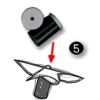
Parachuting Pinwheel
Source Institutions
Build a pinwheel that works without wind! This activity contains steps on how to build a parachuting pinwheel out of paper, a film canister, and some brads.
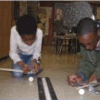
Kick Stick Challenge
Source Institutions
In this design challenge activity, learners investigate series circuits and motors to build a hand-held "kick stick." Their goal is create a battery-operated device that sends a Ping-Pong ball across
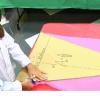
Full of Hot Air: Hot Air Balloon Building
Source Institutions
In this activity, learners create a model of a hot air balloon using tissue paper and a hairdryer. Educators can use this activity to introduce learners to density and its role in why things float.
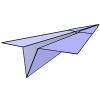
Paper Airplane Contest
Source Institutions
In this fun physics activity (page 9 of the pdf), learners take part in a paper airplane design challenge.

Electric Gamebox Challenge
Source Institutions
In this design challenge activity, learners invent a pinball-like game where a kick stick hits a ping pong ball into a target that buzzes.

Glider
Source Institutions
In this activity, learners construct paper airplanes that twist and turn.
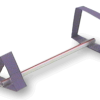
Straws and Airplanes
Source Institutions
Create airplanes from straws and geometric shapes. Test them out to see how far they can fly, or how accurately they can be aimed.
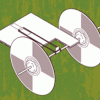
Rubber Band Car
Source Institutions
In this design challenge activity, learners build a car that can travel at least four feet using rubber band power and use the design process to debug problems.

Animal House
Source Institutions
The goal of this activity is to design, build and test a house or toy for an animal.

Make a Garbage Bag Kite
Source Institutions
Make a kite out of a garbage bag, shower curtain, painting tarp--anything light, thin, flexible and plastic!

Bouncing Balloons
Source Institutions
In this sports-themed engineering activity, learners create super bouncy balls out of balloons. Learners brainstorm, test their designs, and share results.
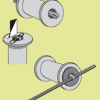
All Wound Up
Source Institutions
In this activity, learners build a racecar using only a rubber band, spool, straw, and paper clip! This racer is a classic toy that zips across a flat surface.
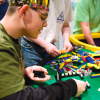
Construction and Destruction
Source Institutions
In this three/four-day lesson, learners calculate perimeters and areas and draw the castle plan to scale.
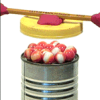
Bearings for Your Whirligig
Source Institutions
Experiment with friction and make bearings for a whirligig! This activity is a nice introduction to friction and bearings and demonstrates why bearings are useful for spinning.
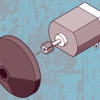
Motorized Car
Source Institutions
In this design challenge activity, learners build a car that uses a battery-operated motor to "drive" at least ten feet.
Ride on a Slide: Toys or Tubes Ride Slopes and Angles
Source Institutions
This activity is a hit for family events and all ages—some will finish in 45 minutes; others can go on for hours.
